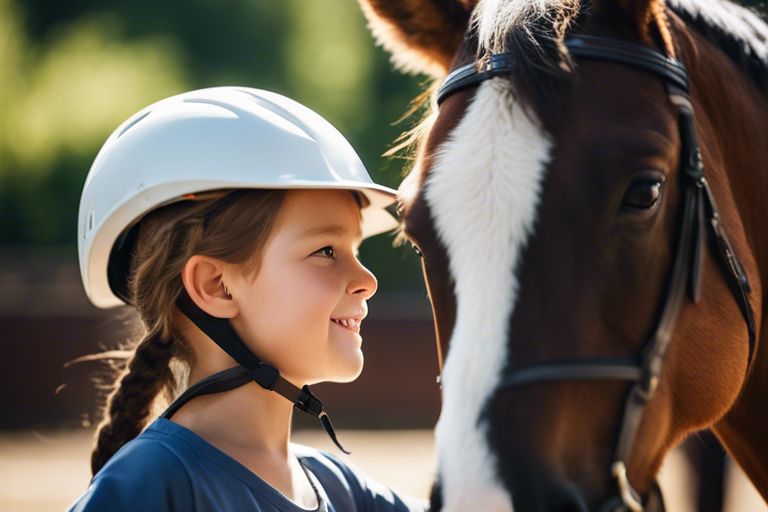Most importantly, choosing the right horse riding school can make all the difference in your equestrian journey. It is crucial to consider the instructor’s experience and qualifications, the condition of the facilities, and the suitability of the horses for your skill level. In this guide, we will walk you through the key factors to consider when selecting a horse riding school that meets your needs and enhances your riding experience.

Understanding Your Riding Goals and Needs
Identifying Your Riding Style and Level
For you to choose the right horse riding school, it is crucial to identify your riding style and level. Your riding style refers to the discipline you are interested in, such as dressage, show jumping, or trail riding. Your riding level indicates your experience and skill level, whether you are a beginner, intermediate, or advanced rider.
Determining Your Availability and Schedule
Clearly understand your availability and schedule before selecting a horse riding school. Check if the school’s lesson times align with your free time. It’s imperative to find a school that can accommodate your schedule to ensure consistent progress in your riding journey.
When determining your availability, consider factors like work, school, or family commitments that may affect your ability to attend riding lessons regularly. Make sure you realistically assess how much time you can dedicate to horse riding to make the most of your learning experience.
Considering Your Budget and Financial Constraints
Goals often play a significant role in shaping your decision about the budget for horse riding lessons. If your goal is to compete in high-level competitions, you may need to allocate a larger budget for more frequent and specialized training. On the other hand, if you are riding for leisure and personal enjoyment, you may opt for a more budget-friendly option.
When considering your budget, remember that the cost of horse riding lessons goes beyond just the tuition fee. Factor in additional expenses such as equipment, clothing, and transportation. It’s imperative to find a balance between your financial constraints and the quality of instruction you are seeking in a horse riding school.
Researching Horse Riding Schools
There’s a few key steps you should take when researching horse riding schools to ensure you make the right choice for you or your child.
Online Research and Reviews
Riding out schools online and reading reviews from current or past students can give you valuable insight into the quality of instruction, horse care, and overall atmosphere at the school. Look for schools with positive reviews that highlight the experience and professionalism of the instructors, the well-being of the horses, and the level of safety provided during lessons.
Asking for Referrals and Word-of-Mouth
An important step in your research process is asking for referrals from other horse riders or horse enthusiasts in your community. Personal recommendations can give you a better sense of what to expect at a particular school, including the teaching style, facilities, and the overall experience. Word-of-mouth referrals can be especially valuable in helping you narrow down your choices to find the best fit.
Plus, don’t hesitate to reach out to local equestrian centers, tack shops, or horse veterinarians for their recommendations on reputable schools in the area. These professionals are often well-connected in the horse community and can point you in the right direction.
Visiting Schools and Observing Lessons
While researching online and getting referrals is crucial, nothing beats visiting the schools in person and observing lessons firsthand. This will give you the opportunity to see the condition of the facilities, how the horses are cared for, and the interaction between instructors and students. Pay attention to the overall vibe of the school and whether it feels like a safe and supportive environment for learning.

Factors to Consider When Choosing a School
- Qualifications and Experience of Instructors
One of the most important factors to consider when choosing a horse riding school is the qualifications and experience of the instructors. Make sure the instructors are certified by reputable organizations and have experience working with riders of all levels. This will ensure that you receive proper guidance and instruction to improve your riding skills.
Quality and Condition of Horses and Facilities
Facilities
Consider the quality and condition of the horses and facilities at the school. The horses should be well cared for, healthy, and suitable for riders of your skill level. The facilities should be clean, well-maintained, and equipped with all the necessary amenities for a safe and enjoyable riding experience.
Lesson Structure and Teaching Style
Horses
Choosing a school with a structured lesson plan and teaching style that aligns with your learning preferences is vital. Look for schools that offer a variety of lesson options tailored to different skill levels and goals. This will help you progress and develop your riding abilities effectively.
Safety Record and Emergency Procedures
Horses
When considering safety record and emergency procedures, opt for a school that prioritizes the well-being of its riders. A good school will have strict safety protocols in place, well-trained staff, and clear emergency procedures to ensure your safety in case of any unforeseen incidents. You can enjoy your riding lessons with peace of mind knowing that your safety is a top priority.
Tips for Evaluating a School’s Instructional Program
Unlike picking a horse riding school based on location or price, evaluating a school’s instructional program requires a closer look at the quality of education and training you will receive. Here are some key factors to consider when assessing a school’s instructional program:
- Assessing the School’s Teaching Philosophy: Little consideration is as important as understanding the teaching philosophy of a riding school. This will give you insight into how instructors approach teaching and learning, and whether their methods align with your goals and learning style. The philosophy will dictate the overall atmosphere and experience you can expect at the school.
- Reviewing Lesson Plans and Curriculum: To ensure you receive comprehensive and structured instruction, take the time to review the lesson plans and curriculum offered by the school. Look for a clear progression of skills and activities that are tailored to different levels of riders. This will help you understand what you will be learning and how your skills will develop over time.
Assessing the School’s Teaching Philosophy
Little consideration is as important as understanding the teaching philosophy of a riding school. This will give you insight into how instructors approach teaching and learning, and whether their methods align with your goals and learning style. The philosophy will dictate the overall atmosphere and experience you can expect at the school.
Reviewing Lesson Plans and Curriculum
To ensure you receive comprehensive and structured instruction, take the time to review the lesson plans and curriculum offered by the school. Look for a clear progression of skills and activities that are tailored to different levels of riders. This will help you understand what you will be learning and how your skills will develop over time.
Observing Instructor-to-Student Ratio and Interaction
Curriculum: When evaluating a riding school’s instructional program, pay attention to the instructor-to-student ratio during lessons. A school that maintains small class sizes ensures that instructors can provide individual attention and personalized feedback to optimize your learning experience. Additionally, observe how instructors interact with students – a positive and encouraging learning environment fosters growth and confidence in your riding abilities.

Considering Additional Amenities and Services
Now that you have narrowed down your choices for a horse riding school based on facilities and instructors, it’s time to consider the additional amenities and services offered. These extras can enhance your overall riding experience and provide you with opportunities to learn more about horses and riding.
Horse Rental and Leasing Options
On top of regular lessons, some riding schools may offer horse rental and leasing options. This can be beneficial if you’re not ready to commit to owning a horse but still want the experience of caring for and riding one regularly. Leasing a horse can also allow you to develop a deeper bond with a specific horse, which can improve your riding skills and confidence.
Trail Riding and Guided Tours
Little adventures in nature can be a fantastic way to practice your riding skills and enjoy the great outdoors. Trail riding and guided tours are often offered by riding schools that have access to scenic trails or countryside. These experiences can help you become a more confident and well-rounded rider as you navigate different terrains and obstacles.
Considering trail riding and guided tours can provide you with a break from the regular lesson routine and expose you to new challenges and opportunities to bond with your horse.
Horse Care and Management Education
While learning how to ride is crucial, horse care and management education is equally important. A good riding school should offer classes or workshops that cover topics such as grooming, tacking up, feeding, and basic first aid. Understanding how to care for a horse properly not only enhances your riding experience but also fosters a deeper connection with these magnificent animals.
It’s crucial to prioritize a riding school that not only focuses on your riding skills but also places importance on teaching you how to properly care for and interact with horses. This comprehensive education will make you a more well-rounded equestrian in the long run.

Making Your Final Decision
Weighing the Pros and Cons of Each School
Not sure which horse riding school to choose? Weighing the pros and cons of each school can help you make a more informed decision. Here is a breakdown of the key aspects to consider when evaluating different schools:
| Pros | Cons |
| Experienced instructors | Higher fees |
| Well-maintained facilities | Long waiting lists |
| Variety of lesson programs | Limited horse selection |
| Positive reviews from current students | Distance from your home |
Trusting Your Instincts and Making a Decision
If you find yourself torn between multiple schools after weighing the pros and cons, trusting your instincts can be the deciding factor. Think about which school gave you the best overall feeling during your visits and interactions with the staff. Your gut feeling is often a reliable indicator of where you will be happiest and most successful in your horse riding journey.
Another important aspect to consider is the chemistry you feel with the instructors and staff. Horse riding is a partnership between you, the rider, and the horse, but also between you and your instructors. Feeling comfortable and understood by the people who will be guiding you is crucial for your progress and enjoyment in the sport.
Asking Questions and Clarifying Concerns
Now is the time to ask questions and clarify concerns you may have about the school you are leaning towards. Don’t be afraid to inquire about their teaching methods, safety protocols, or any other doubts you may have. Weighing all the information you gather can help you feel more confident in your final decision.
Conclusion
As a reminder, when choosing the right horse riding school, it is important to consider factors such as location, facilities, instructors, safety measures, and the suitability of the program for your skill level and goals. By doing thorough research, visiting the school in person, and asking the right questions, you can ensure that you find a school that meets your needs and provides you with a safe and enjoyable learning experience.
Keep in mind, the right horse riding school will not only help you develop your riding skills but also foster a love and appreciation for these magnificent animals. Take your time to find the perfect fit for you, and soon you will be on your way to becoming a confident and skilled rider. Happy riding!
Q: What should I consider when choosing a horse riding school?
A: When choosing a horse riding school, consider the instructor’s qualifications, teaching style, safety measures, the condition of the facilities, and the horses’ welfare.
Q: How important is the instructor’s qualification when selecting a horse riding school?
A: The instructor’s qualifications are crucial as they determine the quality of the lessons and the safety of the riders. Look for instructors who are certified and experienced in teaching horse riding.
Q: What safety measures should a good horse riding school have in place?
A: A reputable horse riding school should have safety protocols in place, including mandatory helmets, well-trained horses, properly maintained equipment, and emergency response plans.
Q: Why is the condition of the facilities important in choosing a horse riding school?
A: The condition of the facilities reflects the level of care and professionalism of the horse riding school. Make sure the stables, riding arenas, and equipment are clean, well-maintained, and safe for both riders and horses.
Q: How can I ensure the welfare of the horses at the horse riding school?
A: To ensure the welfare of the horses at the riding school, observe how the horses are treated, housed, and cared for. A good school will prioritize the health and well-being of their horses, with proper feeding, grooming, exercise, and veterinary care.











